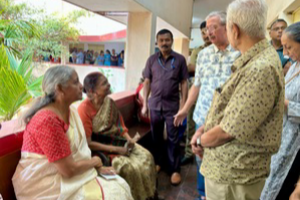Seema Lokhandwala, a computer engineer-turned conservation scientist from Assam, who is dedicated to finding a solution to the human-elephant conflict, will be part of a special half-hour programme titled ‘Call to Earth: Listening to Our Planet’ this weekend.
This programme from CNN will be spotlighting scientists from around the globe who are using sound to protect the planet. The issue that Seema is dedicated to is a big one in the country, particularly in rural villages, as India has the largest population of wild Asian elephants. They are an endangered species and each year, approximately 500 people and 80 to 100 elephants die in the ongoing struggle to coexist. But, Seema believes bioacoustics can help create a safer environment.
She founded the Elephant Acoustics Project, with the idea to understand Asian elephant communication and use acoustics as a medium to help humans and elephants live in harmony.
Seema’s team of like-minded engineers are currently developing the ‘elephant call detector’, a device designed to detect elephant sound, alert local officials to its presence and then emit a sound to send the animal in a different direction.
‘Call to Earth: Listening to Our Planet’ will also have Daniella Teixeira, who shares her research on Australia’s endangered black cockatoos and explains how she uses sound to collect data on the birds in order to better understand how to help them.
Finally, the show will feature oceanographer Grant Deane, who studies sound in the ocean and how it relates to weather and climate.










